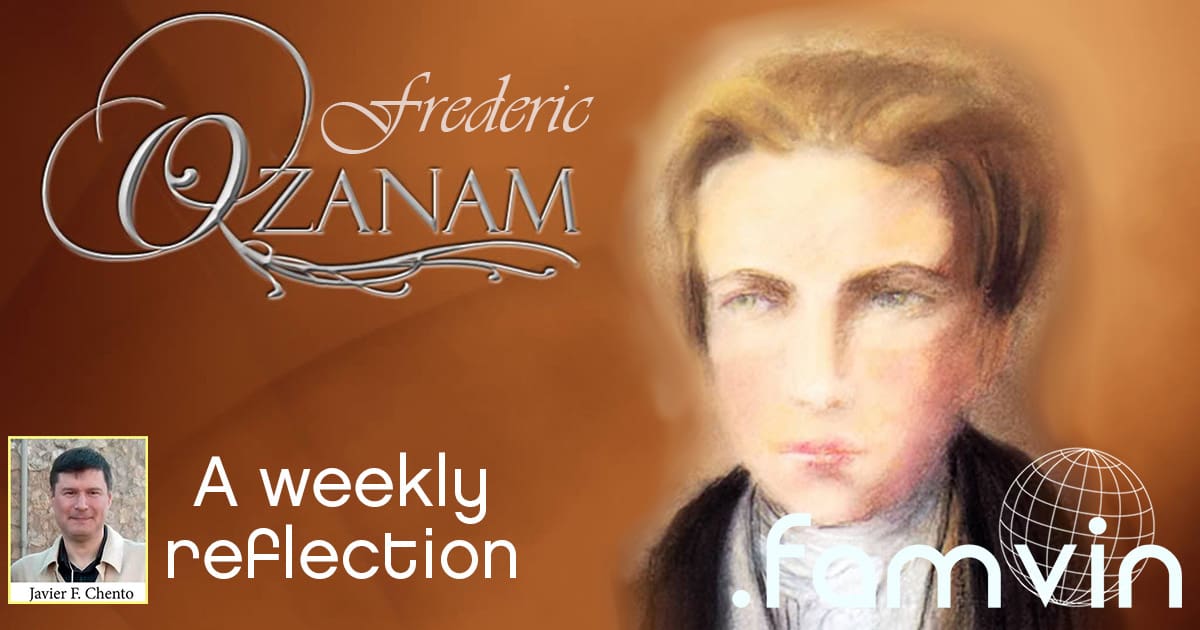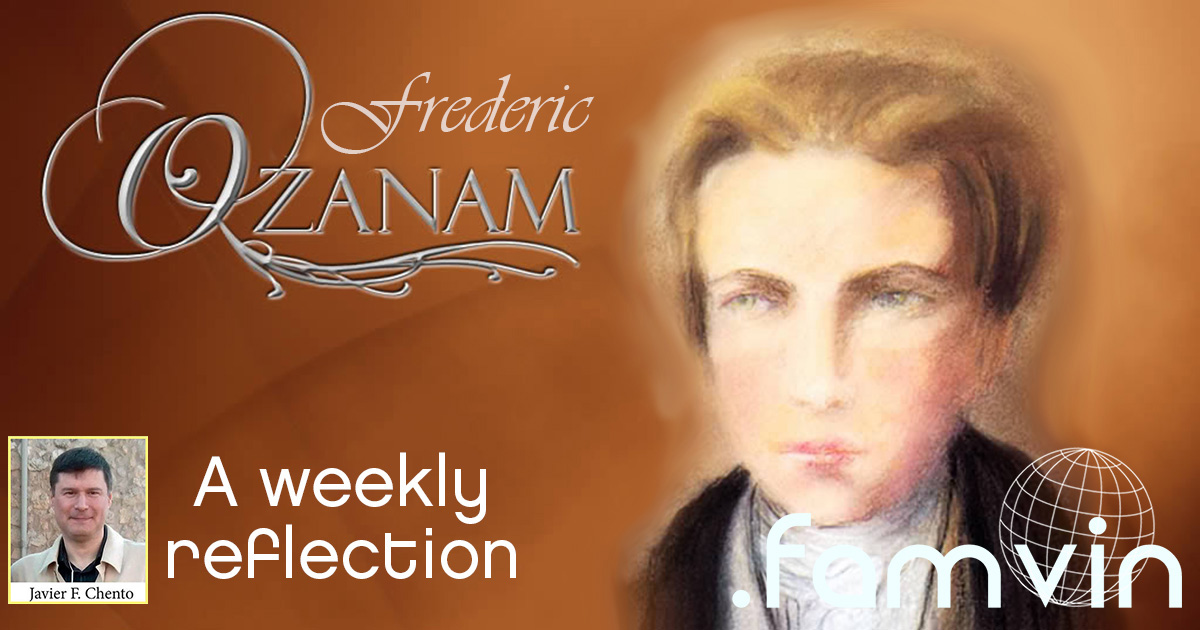Not Only Giving Alms to the Poor • A Weekly Reflection with Ozanam
Almsgiving alone, alms that are not accompanied by words and love, is a humiliation for the one who receives it. Do we need to remember that man does not live by bread alone, that the Savior himself does not only ask to be clothed and fed in the person of the poor, but also visited and consoled? Will we have to expose everything that the masters of charity to St. Vincent de Paul have taught us about the delicate behavior that takes into account the legitimate susceptibility of the poor?

Frederic Ozanam, “Des dangers de la Charité” [On the dangers of charity], in L’Ère Nouvelle, number of October 29, 1848.
Reflection:
- L’Ere Nouvelle was a newspaper that had a short journey: just two years. It was founded by Ozanam and a group of friends, and Frederic wrote in it a good part of his social thought.
- From a small article (entitled “On the dangers of charity”) of only two pages, published in that newspaper, we have selected this paragraph that shows us the fineness of spirit and the deference that Frederic had towards the person. The poor man not only needs material help, but also that we recognize him as a human being, and that he be treated with dignity and respect, with true friendship and closeness.
- We know that Frederic Ozanam was a savant, an enlightened person: he studied two careers, Law and Literature, and got a doctorate in both; he spoke several languages; he was a great reader and a good communicator, just to give a few examples. But another example that can be shown is that he knew the writings of St. Vincent de Paul, which Ozanam undoubtedly read, and he quoted from time to time in his numerous articles and letters. One reflection we can do when reading this Ozanam text is this: do we really know the words of our founders? In particular Saint Vincent de Paul, who together with Saint Louise de Marillac is at the root of what we now call the Vincentian Charism, have we read their writings? Undoubtedly, if we belong to any branch of the Vincentian Family, we will have listened and reflected, not infrequently perhaps, on some of their words. But it is important to go to the sources and, whenever we have the chance, read their own experiences and thoughts in the original texts. The same could be said of Frederic Ozanam: he wrote a lot but, except for some texts quoted ad nauseam, in general we do not know the vast majority of what he wrote. Any effort that we can make to rediscover our big brothers in their original texts will undoubtedly help us to better understand what our role in the World and the Church is.
- Formation, in short, for a Vincentian is a way of knowing how to be and how to act, in order to be more effective and serve better.
Questions for dialogue:
- How is our dealings with the needy?
- If someone asks us for help, do we try, in addition to relieving their need, to know and treat them, to “visit and console” them, as Ozanam says?
- Is my Vincentian formation good enough? Do I know the thoughts and writings of our founders? What can we do to improve in this aspect, following the Vincentian maxim of “to know more to serve better”?
Javier F. Chento
![]() @javierchento
@javierchento
![]() JavierChento
JavierChento








0 Comments